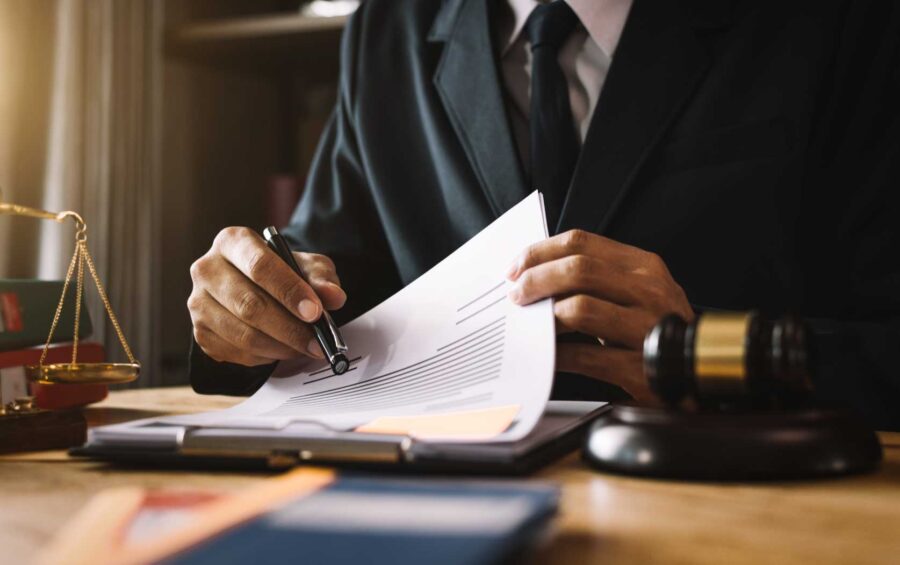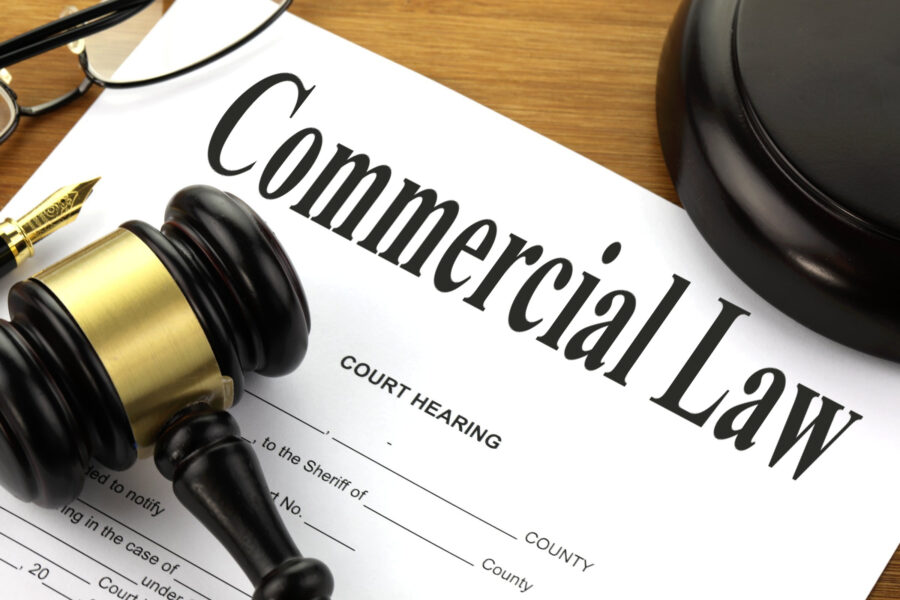When establishing and running a business in Sydney, having the right legal representation can make all the difference. Commercial lawyers specialize in the complexities of business law, and understanding their roles and your needs when hiring one is crucial. This article will explore what you should look for in commercial lawyers, the hiring process involved, and the impact that a good lawyer can have on your business.
Understanding the Role of a Commercial Lawyer
Commercial lawyer play a vital role in ensuring that businesses operate smoothly within the law. They assist companies in navigating through various legal challenges that can arise, including contract disputes, compliance issues, and intellectual property rights. Familiarity with local laws and regulations is essential for any commercial lawyer in Sydney, given the unique legal landscape that governs businesses in Australia. Their expertise not only helps in mitigating risks but also in seizing opportunities that can propel a business forward in a competitive market.
In addition to their legal acumen, commercial lawyers often serve as strategic advisors, helping businesses to align their operations with legal frameworks while also considering long-term goals. This dual role enhances their value to clients, as they can provide insights that go beyond mere legal compliance, guiding businesses toward sustainable growth and innovation.
Key Responsibilities of Commercial Lawyers
Commercial lawyers have a breadth of responsibilities that directly influence their clients’ business operations. Some of the most important duties include:
- Drafting, reviewing, and negotiating contracts to ensure they are legally sound and protect the client’s interests.
- Advising clients on regulatory compliance to prevent potential legal issues.
- Representing clients in dispute resolution, whether through mediation, arbitration, or litigation.
- Providing guidance on business formation, acquisitions, and mergers to optimize tax benefits and legal structure.
- Assisting in protecting intellectual property through registration and enforcement strategies.
These functions highlight the essential support a commercial lawyer provides in the day-to-day operations of a business. Furthermore, their role often extends to conducting due diligence during mergers and acquisitions, ensuring that all legal and financial aspects are thoroughly vetted. This meticulous attention to detail can prevent costly mistakes and foster trust between parties involved in a transaction.
Importance of Specialization in Commercial Law
Commercial law is a specialized field that covers various aspects of business regulations. Therefore, hiring a lawyer with specific expertise in commercial law is important. Specialization means that the lawyer is well-versed in the intricacies of business matters and the specific challenges businesses face. This focused experience allows them to provide insights that general practitioners may not possess.
Moreover, specialized commercial lawyers stay updated with current laws and practices, ensuring that their clients benefit from the latest legal developments. A specialized lawyer can tailor their advice to the unique needs of your industry, ensuring a higher level of service and better outcomes. For instance, a lawyer with experience in technology law will be more adept at navigating the complexities of software licensing and data protection than a generalist. This level of expertise not only enhances the quality of legal advice but also instills confidence in clients, knowing they have a knowledgeable advocate in their corner.
Essential Qualities to Look for in a Commercial Lawyer
Finding the right commercial lawyer involves more than just looking at their qualifications. Here are essential qualities to consider during your search:
Expertise and Experience
First and foremost, assess the expertise of a commercial lawyer. Evaluate their educational background and professional qualifications, such as any memberships in relevant legal associations. Moreover, experience is invaluable in the field of commercial law; a lawyer with a proven track record will have encountered similar issues before and developed effective strategies for addressing them.
Additionally, consider their experience within your specific industry. A lawyer knowledgeable about industry-specific regulations and typical challenges can offer more tailored and effective solutions. This familiarity not only aids in navigating legal complexities but also enhances their ability to foresee potential pitfalls that could arise in your business dealings. A lawyer who has worked with companies in your sector will likely have insights into best practices and innovative approaches that can give your business a competitive edge.
Communication Skills
Effective communication is a hallmark of a good lawyer. Your lawyer should be able to explain complex legal terms and concepts in a way that you can understand. Clear communication ensures that you are well-informed about your legal standing and potential risks, enabling you to make informed decisions. Look for a lawyer who is responsive and open to questions, as this accessibility reflects their commitment to your case. Furthermore, a lawyer with strong negotiation skills can articulate your interests persuasively, whether in contract discussions or dispute resolutions. Their ability to convey your position clearly can significantly influence the outcomes of negotiations, making it essential to choose someone who excels in this area.
Professionalism and Ethics
Engaging a lawyer who follows the highest ethical standards is crucial for any business. Investigate their reputation in the legal community and seek endorsements from previous clients. A professional lawyer will approach their work diligently, maintaining confidentiality while upholding ethical obligations. Look for indications of professionalism, such as punctuality, respect for deadlines, and transparency in billing practices. Additionally, a lawyer’s willingness to provide clear retainer agreements and detailed invoices can serve as indicators of their ethical approach. This transparency not only fosters trust but also helps you understand the financial implications of your legal engagements, allowing for better budget management and planning.

The Process of Hiring a Commercial Lawyer in Sydney
Hiring a commercial lawyer in Sydney is a structured process that requires careful consideration. Here are the main steps involved:
Researching Potential Lawyers
The first step in hiring a commercial lawyer is conducting thorough research. Consider using referrals from trusted business colleagues or industry associations. Additionally, online resources such as legal directories can provide insights into various lawyers’ qualifications and specialties. Pay attention to reviews and testimonials, as they can provide a peer perspective on a lawyer’s expertise and client service. It is also beneficial to check if the lawyer has experience in your specific industry, as this can significantly impact their understanding of the unique challenges and regulations you may face. Click here to learn about why hiring the best commercial lawyers can save your business.
Initial Consultation and Evaluation
Once you have shortlisted potential lawyers, schedule initial consultations with them. These meetings are a chance to discuss your business needs and evaluate how well the lawyer understands your concerns. Prepare a list of questions regarding their experience, approach, and previous cases they’ve handled. This evaluation phase is crucial as it will help you gauge whether the lawyer is a good fit for your business. During these consultations, take note of how the lawyer communicates; effective communication is essential for a successful attorney-client relationship, especially when navigating complex legal matters.
Contract and Fee Structure
After you have selected a lawyer, it is essential to discuss the contract terms and fee structure. Commercial lawyers may bill hourly, offer flat fees, or have retainer arrangements. Make sure to clarify all potential costs upfront, including additional fees that may arise during the representation. Understanding the financial commitments involved will help in budgeting effectively for legal services. Furthermore, inquire about the lawyer’s billing practices, such as whether they provide detailed invoices and how often you can expect to receive them. This transparency can prevent misunderstandings and ensure that you are always aware of your legal expenditures.
Assessing Compatibility and Trust
Beyond qualifications and fees, assessing compatibility with your chosen lawyer is vital. A strong attorney-client relationship is built on trust and mutual understanding. Consider how comfortable you feel discussing sensitive business information with the lawyer. It’s important that they not only understand the legal aspects of your business but also align with your company’s values and vision. A lawyer who is genuinely invested in your success will be more likely to provide tailored advice and proactive solutions that align with your long-term goals.
Understanding the Lawyer’s Network
Another key factor to consider is the lawyer’s professional network. A well-connected commercial lawyer can provide you with valuable introductions to other professionals, such as accountants, business consultants, and industry experts. These connections can be instrumental in helping your business grow and navigate various challenges. During your consultations, ask about the lawyer’s relationships within the industry and how they can leverage these connections to benefit your business. This aspect can often be overlooked, but it can add significant value to your legal partnership.
The Impact of a Good Commercial Lawyer on Your Business
The right commercial lawyer can significantly impact your business’s success. Their expertise not only protects you legally but also contributes to overall business strategy development.
Legal Protection and Risk Management
A good commercial lawyer helps you protect your business from various legal risks. They can identify potential legal pitfalls and create robust contracts that minimize exposure. With legal representation on your side, you can navigate complex regulatory landscapes with confidence, reducing the likelihood of costly legal disputes. Furthermore, they can conduct thorough due diligence when entering into partnerships or contracts, ensuring that you are fully aware of any potential liabilities that may arise from these agreements. This proactive approach to risk management can save your business from unforeseen complications down the road.
Business Growth and Development
Beyond risk management, a well-versed commercial lawyer can facilitate business growth and development. They can guide you through processes such as mergers and acquisitions, intellectual property strategies, and compliance requirements, all integral for expansion. Their expertise allows you to seize opportunities quickly while mitigating legal implications. Additionally, they can assist in drafting and negotiating terms for joint ventures or strategic alliances, ensuring that your business can collaborate effectively with others while safeguarding your interests. This level of legal insight can be a game changer in a competitive market, allowing your business to innovate and expand with confidence.

Conflict Resolution and Negotiation
Disputes are an inevitable part of running a business, but effective conflict resolution can prevent them from escalating. A skilled commercial lawyer is adept at negotiation, able to advocate for your interests while seeking amicable solutions. Whether through mediation, arbitration, or litigation, having a reliable lawyer by your side can lead to more favorable outcomes. They can also provide valuable counsel on how to approach disputes before they arise, equipping you with strategies to handle conflicts internally and maintain positive relationships with clients, suppliers, and partners. This preventative approach not only saves time and resources but also fosters a more harmonious business environment.
Overall, investing time in finding the right commercial lawyer in Sydney is essential for protecting and fostering the growth of your business. By understanding their roles, evaluating their qualities, and knowing the hiring process, you are better equipped to make an informed choice that aligns with your business needs. Moreover, establishing a long-term relationship with a commercial lawyer can lead to a deeper understanding of your business operations, allowing them to provide tailored advice that evolves alongside your company. This ongoing partnership can be invaluable as your business navigates the complexities of the market, ensuring that you are always prepared for whatever challenges may come your way.























